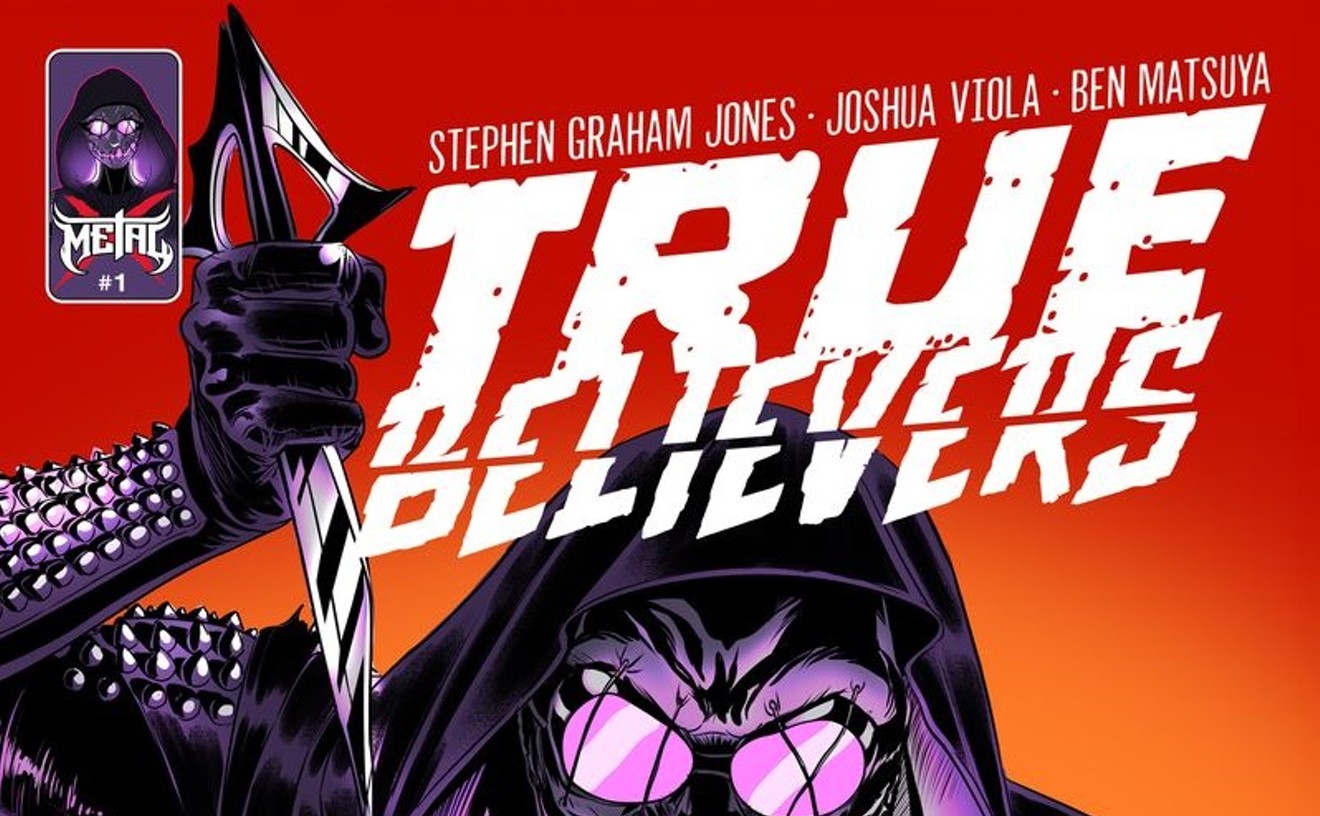This is the theme underlying Christopher Durang's brilliantly crazed Beyond Therapy, now showing at the Avenue Theater. The action begins when Bruce and Prudence meet on a blind date at a restaurant where the waiters never appear. From their skewed conversation, it's clear that Prudence and Bruce are both very odd indeed. He's living with his lover, Bob, but wants Prudence to have his babies. She pops her foot up on the table to prove that her toenail polish matches her fingernails. He drops his head into his hands and cries. More than once. His therapist, Charlotte, is a fan of Peter Shaffer's play Equus, in which a young boy blinds several horses with a spike. Charlotte sees this as a magnificent gesture of emotional freedom and contempt for convention, and encourages her patients to express themselves with equal lack of inhibition. But Bruce's tears appall and embarrass Prudence.
First produced in 1981, Beyond Therapy is saturated in the ethos of the late '70s. In addition to Equus, the script mentions the sex club Plato's Retreat, feminist author Kate Millett, disco dancing and Skylab, the space station that broke up and fell to earth in pieces in 1979. Durang isn't tossing in these references to be trendy, but because they represent an essential part of who his characters are: literate, aware, even smart in an off-hand, off-kilter sort of way. They sometimes feel battered by the pop-culture values of the period, but they also use these values to batter others. Naturally, both Prudence and Bruce are in therapy. This was a therapy-obsessed time: People stayed in treatment for years, and your friends felt free to bestow upon you hours and hours of insights they'd unearthed with their analysts -- who, you tried desperately to refrain from pointing out, were being paid to listen.
The couple's first date is a disaster. Harsh words are spoken and water is tossed. (Durang uses an exhilarating blend of verbal and physical humor throughout this play.) Prudence and Bruce repair to their respective therapists to figure out what went wrong. Prudence's therapist is Stuart, a large, powerful-looking man who slept with her after their second session and is maneuvering to do it again. Prudence notes that sleeping with patients is generally frowned upon, and also that Stuart is a premature ejaculator.
Meanwhile, Bruce is talking to Charlotte, surely one of the most inspired comic creations of the past few decades. She rambles and forgets. She can't keep her words straight, referring to patients as porpoises and her secretary as a dirigible. True to her belief system, she never represses her own urges, but she does find a sideways manner of communicating them -- through the stuffed Snoopy dog she (almost) always carries, which woofs and wags and leaps as required.
So far we've seen only two-person scenes, but now the stage starts to fill up. A resentful Bob enters the picture when Bruce has Prudence over to their apartment for dinner. The therapists entangle themselves in the action. The climax occurs around a table at the same restaurant where Bruce and Prudence first met, with shots going off and much water flying through the air as the protagonists vent their frustration. And finally, the waiter does appear.
James Nantz is big, bluff and funny as Stuart, and Chris Boeckx appealingly fuddled as Bob (still, I rather wish I'd seen the edge of sullen menace I'm sure Josh Hartwell gave the part in the opening weeks). I'd have enjoyed LuAnn Buckstein's skilled comic turn as Charlotte more if I hadn't vividly remembered Mary-Margaret Gallagher's interpretation twenty years ago at the original Bonfils Theater. Gallagher made the character so beamingly vulnerable that you ached to mother her. And at the same time -- though you knew this Charlotte was dangerous -- you wanted to give yourself over to her for some of that mindless nurturing she so freely distributed. In short, she perfectly embodied the demented tenderness of the play.
Kevin Hart (who played the same role at the Bonfils in 1985 and again at the Avenue two years later) is very good as Bruce, primarily because he resists the urge to ham things up. When a character's as daft as this, the best thing an actor can do is play it straight, and that's just what Hart does, remaining earnest and solid even as the nuttiest words imaginable are coming out of his mouth -- and then looking puzzled by others' reactions to those words. Amie Mackenzie matches him well, playing Prudence as low-key, but quietly vibrating with tension. She, too, appears to be genuinely living through her on-stage experiences, sometimes surprised by Bruce's behavior, sometimes angry or contemptuous, but almost always too confused and nervous to actually walk away.
The urge to make a speedy exit when confronted with an apparently nutty date -- an instinct every one of us has honored at some time or another -- isn't always right, Durang suggests. Sometimes being with someone peculiar, damaged or weird can be the right thing, or at least a lot better than being alone. As most married couples know, deep down we're all crazy as loons. Love is accepting, honoring, even coming to crave your partner's looniness.











